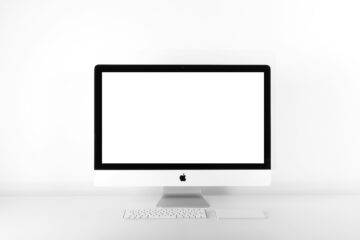
As you start going back to the office more consistently, odds are it’s going to be different than things were in 2019 –a marriage between work-from-home and in-office is going to be the standard for most law firms going forward (at least for the short term).
For Mac-first law firms in Florida that have been using SaaS cloud tools for years, this is likely to be an easier adjustment than many think. The focus needs to center around the method your team accesses firm information, and then to implement clear and understandable policies to protect that information.
The Old Way of Doing Security Tech
An era ago – also known as Pre-COVID – IT security was a simpler affair. Law firms hired IT companies to secure their office from outside intrusion, leaving the office itself relatively free to operate.
With today’s nebulous office, it’s not enough to put a digital wall around the office – it needs to protect each device that has access to your firm’s data. And that means everyone at your firm – from legal secretaries to named partners – need to have some level of understanding for not just what the firm is doing to protect its information, but why as well.
Two-Factor Authentication and VPNs
A few standard measures you should consider:
- Cloud storage is the new way forward when it comes to storing your content safely and making it accessible across networks to the employees that need it. Using the cloud can also help with sharing and editing documents more efficiently (for example, Cisco Cloudlock).
- Proxied connections to devices are the best way to go because they act as a firewall and web filter, provide shared network connections, and cache data to speed up common requests. A proxied connection or proxy server can keep users and the internal network protected from harmful internet attacks all while providing a high level of privacy.
- Swap out standard password authentication for two-factor identification. If you have not done this yet, it is a point that will keep coming up as it is your best option in 2021 for increased security measures. In addition, multi-factor authentication uses OTP (one-time password) technology, certificate-based USB tokens, and many more advanced security technologies (if you want to go into what all this means, feel free to schedule a consultation.
- Get app security by using on-device security apps like Proofpoint and Datamotion, etc. These systems can help deliver end-to-end protection, as well as scan and encrypt.
- Keep Wi-Fi off public networks – specifically the ones at Starbucks. If you want to be extra secure, never connect your phone to them in the first place.
- Establish a set-in-stone contingency plan for reducing risks. If your employee loses their laptop that has sensitive business information on it, it’s essential that the laptop can either be tracked or remotely deleted (again, we can help with this).
In the end, it all comes down to the precautions you take and making sure that you get on them sooner, rather than later. As always, we’re just a call away.


